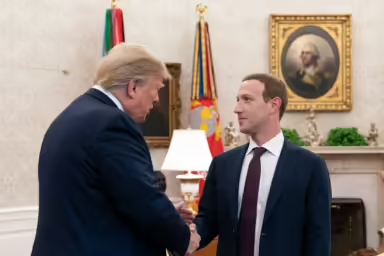Welcome to WhoWhatWhy’s weekly COVID-19 roundup. There’s a lot of virus coverage out there, so this feature will give you a dose of the latest news.
We’re getting vaccinated. Reports from WhoWhatWhy staff are trickling in; a Moderna in Brooklyn, a Pfizer in Detroit, a Johnson & Johnson in Richmond.
We’re making plans. We’re going to travel, to fly places. We’re going to visit our grandkids and hug them. We can hang out with other vaccinees. Drive cross-country and visit some national parks. We’re thinking about theater again, even if it’s of a new paradigm. Productions like Blindness, soon to be at theaters in New York from stages in London where, with a socially-distanced and masked audience, it was a big hit. Perhaps Blindness is a reflection of our hunger for live performance. Adapted from the novel by José Saramago, it’s an apt allegory of our current times — a story of the will to survive against all odds.
We are getting vaccinated by automobile, by plane, by drone, by your local pharmacist (key to the success in West Virginia). Planes in Alaska fly to places that have no roads; the vaccine delivery effort is named Project Togo for the lead sled dog when dog teams delivered antitoxins across Alaska in 1925 to quell the diphtheria outbreak in Nome and end that town’s quarantine. Planes land on islands like Bois Blanc in the Straits of Mackinac (separating the US from Canada, where the residents are pretty isolated year round. “It turns out the single-dose J & J vaccine is ideal for places like Bois Blanc. It’s less finicky than the Moderna and Pfizer vaccines that require ultra-cold freezer storage. And there’s no need to fly back to give a second dose,” Robin Erb notes in Bridge Michigan.
Maybe one day soon a little electric vaccine van will pull up in front of your house (helping to solve our other big problem).
It’s exciting to get that text message after being on three lists for over a month, to get that call from the hospital or the local pharmacy, to luck into a leftover dose. It’s the most excited I’ve been in exactly a year when I flew to Ireland for what turned out to be the grimmest St. Patrick’s Day ever. It’s amazing how excited you can get about having a needle stuck in your arm.
We are the lucky few in comparison to most of the rest of the world, where hoarding continues in rich countries and those suffering humanitarian crises on top of the pandemic wait for a vaccine. And wait. One bright spot for countries that don’t have as much access to vaccine supply is Ghana, where vaccines are being delivered via self-flying drones.
We are getting vaccinated. As a planet we are crawling our way toward herd immunity, the magic number that will allow us to return to, or at least move toward, a semblance of normalcy. Being vaccinated will allow us to begin to deal with the other big problems that await us.
Not all of us are on board this vaccination train. We still have the anti-vaxxers, the pandemic deniers, the technologically inept (usually the elderly, but why is it so hard to sign up?). Possibly more worrying is the cohort of the younger generation who have been raised in a fully vaccinated world and never witnessed firsthand an epidemic (polio, for example). They were raised in a culture that has steadily allowed more exemptions from vaccination for nonreligious reasons, not to mention fed a steady diet of false information disseminated via social media (really, a tracking microchip?). More than half of the military, mostly younger members, are opting out when offered the vaccine. And because it’s FDA-approved for emergency use rather than a standard vaccine, they are allowed to say no (one of the few choices a soldier has). This is a concerning trend — hesitancy can prolong not just the current pandemic, but lead to resurgences of old ones, like measles.
Herd immunity remains a very big question mark. Certainly the pandemic can’t end until wealthy nations stop hoarding. Will we get there? As exciting as it is to finally come up on the list or get the call, to find a walk-in location and get that jab, it’s all a numbers game, and we won’t know until we are there. We may yet see a “fourth wave” of the pandemic, setbacks, spikes in cases and deaths, and new vaccine-resistant mutations. The virus doesn’t die until it runs out of new people to infect. We may be chasing its continuous evolution forever. It is blind to our suffering; it wants to survive against all the odds, just like we all do.
So, yes, we are getting vaccinated. Are you?
Related front page panorama photo credit: Adapted by WhoWhatWhy from CDC Global / Flickr (CC BY 2.0), Navy Medicine / Flickr, Navy Medicine / Flickr, and WhoWhatWhy



